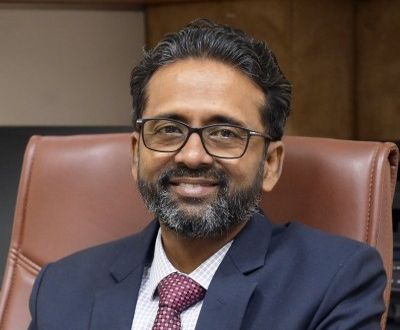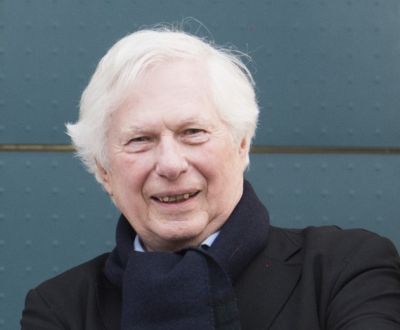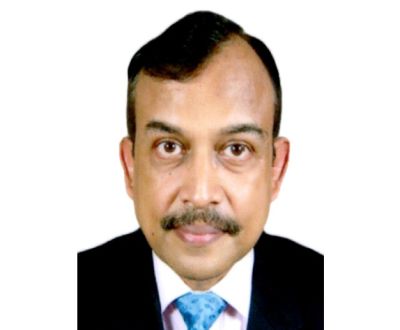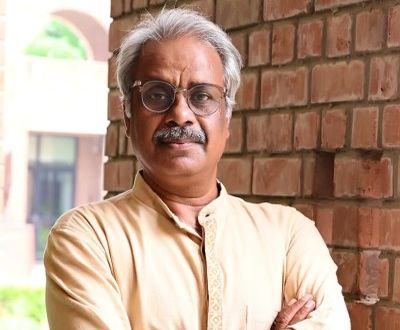Commonwealth Symposium on
Regenerative Ecosystems : From Ideas to Actions
26th March 2025
1:00 PM – 4:30 PM, GMT (UK)
Purpose:
The Commonwealth Symposium on Regenerative Ecosystems (CWSRE) on 26th March 2025 shall deliberate on an innovative and refreshing idea of regenerativeness to sustainability and how the science of regenerativeness and climate balancing approach can be applied to implement SDGs in local habitats and ecosystems effectively. The Symposium shall be an immersive and reflective process to evaluate and appreciate (a) the strategic framework for the regenerative ecosystem and (b) operational strategies with local ecology-balancing SDG implementation with (c) empirical evidence of successful application of regenerative science in different ecosystems (socio-ecological systems). A few highlights of the Symposium include:
- Addresses the persistent challenges in implementing and achieving Sustainable Development Goals (SDGs), emphasizing the critical need for collaboration between policymakers and transdisciplinary action researchers specializing in ecosystem regeneration.
- Introduces the Science of Regenerativeness as a transformative tool for sustainability, grounded in AIESS (all interacting evolving systems science), which integrates the philosophy of science and action-oriented methodologies.
- Explains the strategic framework and core design factors that underpin regenerative ecosystems, which are critical for the effective implementation of SDGs.
- Peeks into the Operational Strategies for effective SDG implementation by focusing on localized ecology and climate-balancing governance units (Gram Panchayat, Ward, Commune, Union Parishad, etc.) to empower communities for collective, sustainable actions.
- Highlights successful regenerative experiments and practices across diverse ecosystems presented by leading scholars, scientists, and practitioners.
In the above Symposium, a few lead authors of the recently published book Regenerative Ecosystems in the Anthropocene: A Transdisciplinary Ecosystemic Framework for Regenerativeness shall briefly present the science, strategy, and significance to implementation of SDGs. Further, this mini-symposium shall be a critical precursor to the 4th International Conference on Regenerative Ecosystems (ICRE, 2025) from 4-6 December 2025, in Bhubaneswar, India, fostering global collaboration and innovation for improvising SDG implementation in different countries of the Commonwealth Nations. Please click here https://xim.edu.in/aiess/icre2025/ for details on the conference, ICRE 2025.
Key Features of the Book:
Regenerative Ecosystems in the Anthropocene
A Transdisciplinary Ecosystemic Framework for Regenerativeness
Editor: Amar K.J.R. Nayak, Springer Nature, 2024
The book offers a transdisciplinary ecosystemic framework for the analysis of ecosystems. It uses eight dimensions (economic-social-political-ecological) and 40 factors to diagnose degenerating ecosystems and to synthesize regenerative ecosystems amid growing uncertainty and inequality in the Anthropocene.
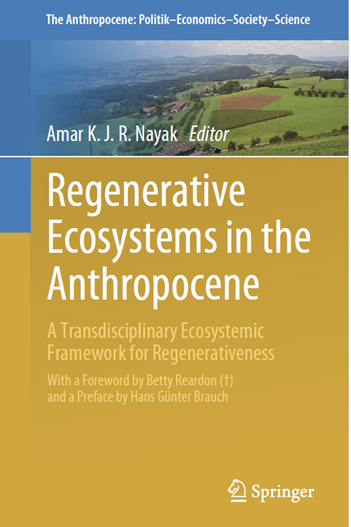 Chapter 1 broadly defines the `all interacting evolving systems science’ (AIESS) approach in terms of its ecosystemic and transdisciplinary action research methodology.
Chapter 1 broadly defines the `all interacting evolving systems science’ (AIESS) approach in terms of its ecosystemic and transdisciplinary action research methodology.
Chapter 2 explains the AIESS approach through the four axioms of interconnectedness, interdependence, interactions, and intentionality to diagnose degeneration and synthesize regenerative systems. Part 1 of the book discusses the issues and approaches to Regenerativeness. Parts 2, 3, 4, and 5 illustrate cases of regenerative systems in different ecosystems, viz. natural, rural-indigenous, urban, and industrial ecosystems. In summary, the book presents:
1. A ground-breaking explanation of the science of change in the Anthropocene and epochs before it through the All Interacting Evolving Systems Science framework.
2. A unique transdisciplinary ecosystemic framework is used as a methodology to diagnose complex degenerating ecosystems and synthesize regenerative ecosystems in different world geographies.
Through various cases from different ecosystems, viz., natural ecosystems, rural-indigenous ecosystems, urban ecosystems, and industrial ecosystems, the book presents the challenges, steps, and processes to synthesize regenerative ecosystems. Not only the researchers and scholars in systems science, systems dynamics, systems design, and sustainable transition strategies but also the policymakers, corporate leaders, and development experts will significantly benefit from the science of regenerativeness. You can click here: https://link.springer.com/book/10.1007/978-3-031-53298-6 for a quick online reference to the book.
Symposium Schedule:
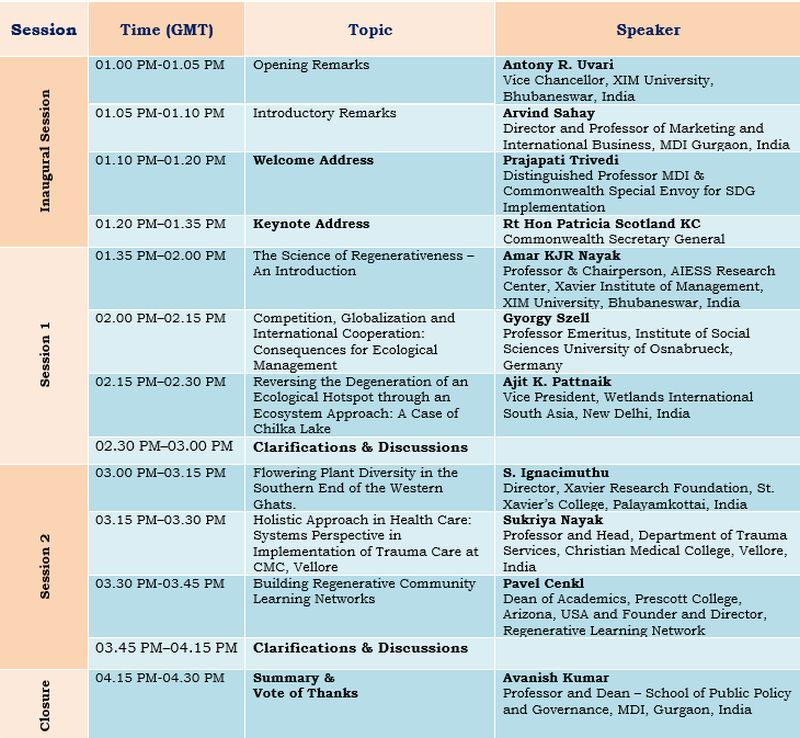
Center for All Interacting Evolving Systems Science
XIM University, Bhubaneswar
Website: https://xim.edu.in/aiess/activities
Email: [email protected], [email protected]
ICRE, 2025
SPEAKERS

Rt. Hon Patricia Scotland KC
Secretary-General
Click to View Profile
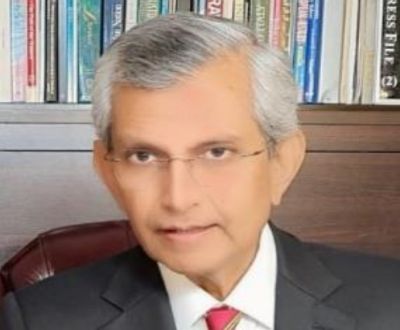
Prof. Prajapati Trivedi
Secretary-General’s Special Envoy
Click to View Profile
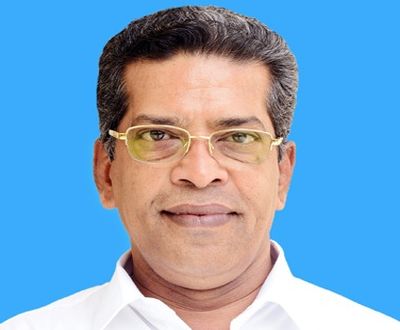
Fr. (Dr.) Antony R Uvari, S.J.
Vice Chancellor, XIM University
Click to View Profile
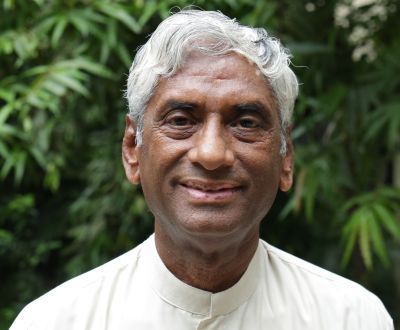
Dr. S. Ignacimuthu, S.J.
Director, Xavier Research Foundation
Click to View Profile
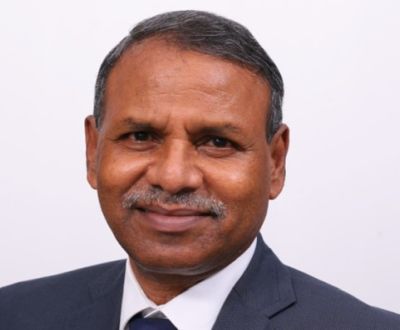
Dr. Sukria Nayak
Ex-Professor, General & Trauma Surgery
Click to View Profile
Inaugural Session
Regenerative Science & Climate Resilient Food Systems
Challenges to Regenerative System
Regenerative Wetlands
Regenerative Forest Systems
Regenerative HealthCare
Regenerative Learning



